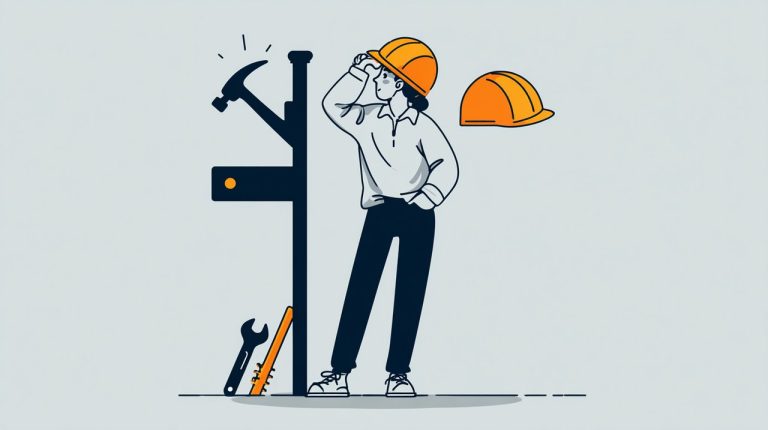A roof is more than just a cover; it’s your home’s primary defense against the elements, a significant aesthetic feature, and a long-term investment. When it’s time for repair or replacement, selecting the right roofing contractor is a critical decision that directly impacts the longevity, performance, and value of your property. Rushing this choice or falling for common pitfalls can lead to costly mistakes, shoddy workmanship, and significant stress. This ultimate checklist provides a systematic approach to evaluating potential roofing contractors, equipping you with the knowledge to make an informed choice and secure a successful outcome.

1. Verify Licenses and Certifications
Proper licensing is non-negotiable. It signifies that a contractor has met state and local requirements, often including demonstrating a certain level of competency and adherence to building codes. Confirm their license is current and valid in your operating area.
- Action: Request their license number and verify it with the relevant state or local licensing board. Some states require specific roofing licenses, while others may fall under a general contractor’s license.
- Look for: Any additional certifications from roofing material manufacturers (e.g., GAF Master Elite, CertainTeed SELECT ShingleMaster). These certifications often indicate a contractor has undergone specialized training and can offer enhanced material warranties.
2. Confirm Comprehensive Insurance Coverage
Adequate insurance protects you, the homeowner, from liability in case of accidents or damage during the project. There are two primary types of insurance a reputable contractor must carry:
- General Liability Insurance: This covers damage to your property or a neighbor’s property caused by the contractor or their crew. Ask for a certificate of insurance directly from their insurance provider, not just a copy provided by the contractor.
- Workers’ Compensation Insurance: This covers medical expenses and lost wages for any of the contractor’s employees injured on your property. Without it, you could be held liable for injuries.
- Action: Always request current certificates of insurance for both general liability and workers’ compensation, and call the insurance providers to confirm their validity and coverage limits.
3. Seek References and Review Portfolios
A contractor’s past work and client satisfaction are strong indicators of their reliability. Don’t rely solely on online reviews; ask for direct references.
- Action: Request at least three recent references from clients whose projects were similar to yours. Contact these references and inquire about their experience, the contractor’s communication, adherence to timelines, and overall satisfaction.
- Review: Examine the contractor’s portfolio of completed projects. Look for consistency in quality, attention to detail, and a variety of project types if applicable.
4. Evaluate Experience and Specialization
Longevity in the business often translates to stability and expertise. A contractor with a proven track record is more likely to handle unforeseen challenges effectively.
- Action: Ask how long the company has been in business under its current name. Inquire about the experience level of their crew, particularly the project manager or foreman who will be on-site.
- Consider: Does the contractor specialize in the type of roofing material you’re considering (e.g., asphalt shingles, metal, tile)? Specialization can mean deeper expertise and more efficient work.
5. Demand Detailed Proposals and Contracts
A clear, written proposal and contract eliminate ambiguity and protect both parties. Avoid any contractor who offers only a verbal quote or a vague agreement.
- Action: Insist on a written proposal that itemizes all costs, including materials (type, brand, color), labor, permits, debris removal, and any potential hidden fees. It should specify the scope of work, project timeline, and payment schedule.
- Review: The contract should clearly outline warranties, dispute resolution procedures, and a clause for change orders. Read every detail before signing and ensure all agreements are in writing.
6. Understand Warranty Offerings
Reputable contractors offer warranties on both their workmanship and the materials used. These provide peace of mind and protection against future defects.
- Workmanship Warranty: This covers defects in the installation. Ask for the duration and what specifically it covers.
- Material Warranty: This is provided by the manufacturer and covers defects in the roofing materials themselves. Some contractors, with specific manufacturer certifications, can offer extended or enhanced material warranties.
- Action: Obtain copies of all warranties in writing, understand their terms, and know how to file a claim if necessary.
7. Assess Communication and Customer Service
Effective communication is vital for a smooth project. A reliable contractor will be responsive, transparent, and professional.
- Action: Pay attention to how quickly they respond to your initial inquiries. Do they answer your questions thoroughly? Do they provide clear explanations? A designated point of contact for the project is a good sign.
8. Inquire About Safety Practices
Roofing work can be dangerous. A responsible contractor prioritizes safety for their crew and your property.
- Action: Ask about their safety protocols and training. How do they protect your landscaping, driveways, and other vulnerable areas during material delivery and debris removal? What measures do they take to prevent accidents on site?
9. Clarify Payment Schedules
Beware of contractors who demand a large upfront payment. A reasonable payment schedule typically involves an initial deposit (often 10-30%), progress payments, and a final payment upon satisfactory completion.
- Action: Ensure the payment schedule is clearly outlined in the contract. Never pay the full amount until the project is completed to your satisfaction and all necessary inspections have passed.
10. Confirm Local Presence and Reputation
A local contractor is often more accountable and accessible for follow-up issues. They also tend to be more familiar with local building codes and climate considerations.
- Action: Verify their physical business address. Be wary of contractors who operate solely out of a truck or P.O. box, especially after a storm. Check their standing with the Better Business Bureau (BBB) and local consumer protection agencies.
Red Flags to Watch For
- Unsolicited Offers: Be cautious of contractors who show up at your door offering deals, especially after a storm. They might be storm chasers who leave town once the work is done.
- Pressure Tactics: High-pressure sales tactics or demands for immediate decisions are warning signs.
- Cash-Only Deals: A contractor who insists on cash payments to avoid taxes or paperwork should be avoided.
- Lack of Paperwork: Any contractor unwilling to provide detailed, written estimates, contracts, and insurance certificates is a significant risk.
- Too Good to Be True Prices: While competitive pricing is good, extremely low bids often indicate corners are being cut on materials, labor, or insurance.

Protecting your investment begins with informed choices. By meticulously applying this checklist, homeowners can confidently select a roofing contractor who prioritizes quality, safety, and customer satisfaction, ensuring a durable and reliable roof for years to come.
💡 Frequently Asked Questions
Selecting the right roofing contractor is critical because it directly impacts your home's roof longevity, performance, and value, helping you avoid costly mistakes, shoddy workmanship, and significant stress.
Homeowners must verify the contractor's current and valid state or local licenses and any relevant manufacturer certifications. Additionally, they must confirm comprehensive insurance coverage by requesting current certificates for both General Liability and Workers' Compensation insurance directly from the insurance providers.
A detailed proposal should itemize all costs, including materials, labor, permits, and debris removal, and specify the scope of work, project timeline, and payment schedule. The contract should also clearly outline warranties, dispute resolution procedures, and any clauses for change orders.
Major red flags include unsolicited offers, high-pressure sales tactics, demands for cash-only payments, a reluctance to provide detailed written estimates or contracts, and bids that seem suspiciously low.





